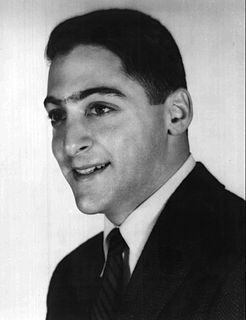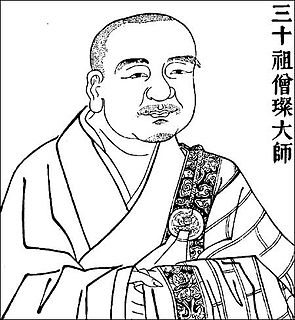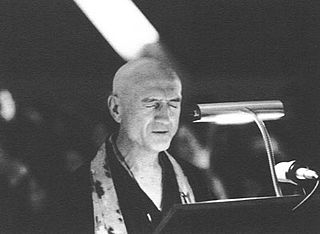Top 1200 Zen Master Quotes & Sayings
Explore popular Zen Master quotes.
Last updated on April 13, 2025.
Here's an example: someone says, "Master, please hand me the knife," and he hands them the knife, blade first. "Please give me the other end," he says. And the master replies, "What would you do with the other end?" This is answering an everyday matter in terms of the metaphysical. When the question is, "Master, what is the fundamental principle of Buddhism?" Then he replies, "There is enough breeze in this fan to keep me cool." That is answering the metaphysical in terms of the everyday, and that is, more or less, the principle zen works on. The mundane and the sacred are one and the same.
Zen is really extraordinarily simple as long as one doesn't try to be cute about it or beat around the bush! Zen is simply the sensation and the clear understanding ... that there is behind the multiplicity of events and creatures in this universe simply one energy -- and it appears as you, and everything is it. The practice of Zen is to understand that one energy so as to "feel it in your bones.
Zen is the enemy of analysis, the friend of intuition. The Zen artist understands the ends of his art intuitively, and the last thing he would do is create categories; the avowed purpose of Zen is to eliminate categories! The true Zen-man holds to the old Taoist proverb,
Those who know do not speak. Those who speak do not know.
Zen purposes to discipline the mind itself, to make it its own master, through an insight into its proper nature. This getting into the real nature of one's own mind or soul is the fundamental object of Zen Buddhism. Zen, therefore, is more than meditation and Dhyana in its ordinary sense. The discipline of Zen consists in opening the mental eye in order to look into the very reason of existence.
Zen is to religion what a Japanese "rock garden" is to a garden. Zen knows no god, no afterlife, no good and no evil, as the rock-garden knows no flowers, herbs or shrubs. It has no doctrine or holy writ: its teaching is transmitted mainly in the form of parables as ambiguous as the pebbles in the rock-garden which symbolise now a mountain, now a fleeting tiger. When a disciple asks "What is Zen?", the master's traditional answer is "Three pounds of flax" or "A decaying noodle" or "A toilet stick" or a whack on the pupil's head.
Zen abhors repetition or imitation of any kind, for it kills. For the same reason Zen never explains, but only affirms. Life is fact and no explanation is necessary or pertinent. To explain is to apologize, and why should we apologize for living? To live—is that not enough? Let us then live, let us affirm! Herein lies Zen in all its purity and in all its nudity as well.
Until today, it really pissed me off that I'd become this totally centered Zen Master and nobody had noticed. Still, I'm doing the little FAX thing. I write little HAIKU things and FAX them around to everyone. When I pass people in the hall at work, I get totally ZEN right in everyone's hostile little FACE.
























